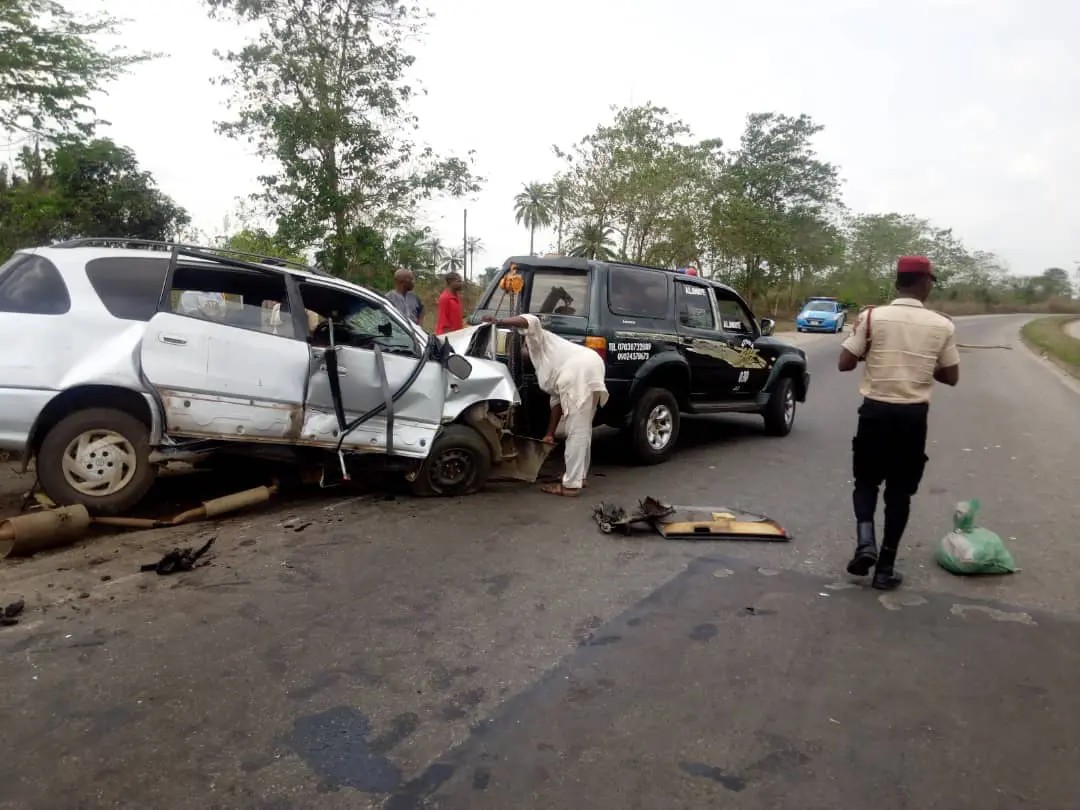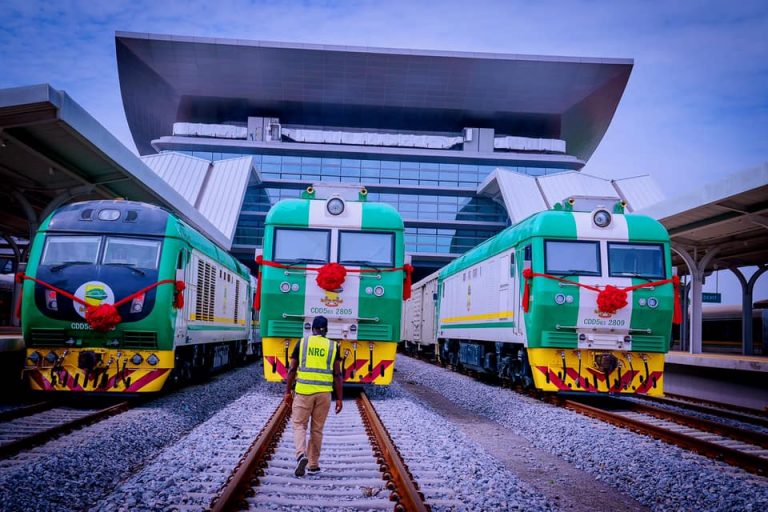
The Nigerian tourism industry faces challenges that are partly due to insecurity. But to break the barrier, at least in the interim, stakeholders are exploring artificial intelligence, particularly virtual and augmented reality, to keep the sector buzzing, FELICITAS OFFORJAMAH reports.
Insecurity is not just vulnerability to a dangerous or threatening situation; it is a state of uncertainty and anxiety—the lack of peace of mind. Nigeria’s broad demographic and wealth of resources have made it stand out as one of Africa’s economic powerhouses. However, it is a developing country that faces several security issues that have an immediate effect on its economy.
These issues include organised crime, ransom kidnapping, and conflicts between farmers and herders. These security risks jeopardise the socio-political climate and ultimately impact the travel and tourism industry.
With an average of 13 people kidnapped per day in Nigeria in the first half of 2021, kidnapping for ransom emerged as the new lucrative enterprise. This resulted in the horrifying 2,371 people becoming victims of kidnapping in just six months.
For 2024, the police also reported having registered more than a hundred occurrences of kidnapping. Many people feel exposed to these kinds of threats as a result of the increase in abductions, which has spread widespread fear and confusion among Nigerian citizens.
The formerly acquired hope of Nigeria being a secure country, especially for the sake of the travel industry, is dim as analysts disclosed that the economic hardship currently experienced is motivating citizens to embrace crime to survive.
For the first half of 2024, Nigeria ranked second behind South Africa, with the highest crime on the continent with a score of 66.7. Analysing the crime index provided by data platform, Numbeo, revealed that although many young people on the continent, socioeconomic problems including high living expenses, inflation, and unemployment frequently overshadow this demographic advantage and make them yield to crime to earn a living.
This has hindered the expansion of the travel and tourism industry, as expounded in a Security and Defence Quarterly publication. Defining security as a crucial metric for safe tourism that cannot be taken for granted, it states that “tourists are suitable targets because they carry money or personal effects, and they are in an unknown environment. The perpetrators of criminal offences are motivated, especially in the poorer countries, by seeing a clear difference between those who have and those who have not, and if there are no suitable guardians, such as police or security, the possibility of perpetrating criminal offences against tourists is increased.”
To come to a country at the risk of being ransomed or being welcomed with “your life or your money” at gunpoint is not palatable to the imaginations of intending tourists, but industry participants have concerted on the idea of artificial intelligence, particularly virtual reality (VR) and augmented reality (AR), to revitalise the travel sector while the insecurity factor is being managed and tackled by political players.
A burgeoning technology that has revolutionised how travel enthusiasts experience destinations, it allows ‘digital tourists’ to explore places without being there physically and elevates the experience by providing a new level of immersion. For some tourists, it is a safe choice that should be embraced, especially if you don’t know how safe the destination is.
Though there are diverse views by experts on the leverage of VR and AR in navigating the travel and tourism sector to prosperity status, it seems the potent force of artificial intelligence has ushered in a new age in consumer experience, safety standards, and travel operations.
Asseen in past years, the travel and tourism sector encountered difficulties in increasing travel security, satisfying the varying demands of travellers, and optimising operational efficiency.
However, with the recent adoption of technology and intelligent systems, artificial intelligence has greatly improved travel safety and security in countries around the world. AI integration in the travel industry has also enhanced risk assessment and danger identification, which has transformed airport security with sophisticated screening procedures. For instance, automated facial recognition systems can reliably identify and validate travellers, lowering the possibility of identity theft and enhancing security as a whole.
A World Bank report highlighted that the tourism industry is vital to the growth of the majority of developing economies, with the potential to create millions of jobs and promote entrepreneurship and innovation, the report stated that “digital technologies and platforms can help developing economies to leapfrog conventional destination management challenges and boost their competitiveness.”
Recently, the Minister of Tourism, Lola Ade-John, stated that it is important for the travel and tourism industry to leverage “technology to develop a comprehensive tourism database, website, mobile app, and virtual tours.” Raising the hope of concerned tourism aficionados, Ade-John said that the ministry is “partnering with private sector players like Cavista Holdings as well as tech-savvy youth to drive this digital revolution.” Veterans across the technology and tourism sectors presented perspectives on the technology for the Nigerian tourism sector.
For Science, Technology, and Innovation (STI) Policy Advisor and Founder,Jidaw.com, Jide Awe, VR can help Nigeria boost its tourism sector by enabling the provision of safe, immersive experiences of Nigeria without the physical risks associated with physical travel.
According to him, it is particularly useful given some of the country’s security challenges, and the accessibility would make these tourist sites more accessible to people with disabilities and those unable to travel physically due to cost or other constraints.
“The power of VR lies in its ability to tailor tourism experiences to individual preferences, something that is difficult to achieve with physical tourism. VR can also enhance Nigeria’s tourism through innovative and state-of-the-art marketing of places that could interest tourists. This can attract both potential physical and online visitors. Potential physical tourists who seek authentic experiences can also use VR to plan their trips,” Awe explained.
The expert illuminated the dim side of the technology adoption, explaining that cyber security threats and the digital divide are “dark side” issues that pose significant challenges, and the tourism sector is no exception.
“Adequate data privacy must be ensured to protect the vast amounts of data collected during VR experiences. Cyber attacks and deep fakes are also serious threats.” He added that a potential challenge that could hinder the widespread VR adoption in the tourism sector is inadequate human capital and infrastructure.
“Developing high-quality VR content requires significant investment and expertise. This is a readiness issue that is critical given the existing digital divide. It is a reality that may exclude a significant portion of the population with limited access to the Internet and VR technology.
“Readiness also depends on the availability of digital skills to enable the development and implementation of VR tourism initiatives. Collaboration between the public and private sectors, along with the right policy support and investment, is required to leverage VR to transform tourism in Nigeria,” the STI policy advisor stated.
Calming the fears of concerned critics, the acclaimed pioneer of National Information Technology Policy for Nigeria, Chris Uwaje, said that immersive experiences allow potential tourists to explore and experience the vast African destinations virtually in a way never experienced before and deliver an immersive and beneficial multiplier effect that will supercharge the desire to physically visit and tour the continent, particularly Nigeria. Uwaje asserted that leveraging virtual reality (VR) technology for the tourism sector can become a gold mine for the country.
“Promotion of VR can re-imagine the hidden potential of African history and can invigorate the landscape of African tourism to become more innovative, engaging, and sustainable by attracting more visitors and supporting local economies.
“VR will promote increased interest and accessibility of tourists to appreciate Africa. This translates to maximising the reach to a wider audience, including those who may not be able to physically travel due to constraints such as cost, mobility, or time.”
The country convener of the Internet Protocol Version Six (IPv6) Council added that VR intervention can enhance the cultural preservation of Nigerian cultural heritage sites and traditions by avoiding and/or tremendously reducing the risk of damage to arte facts from uncontrollable tourism effects.
“VR-tourism model can promote sustainable tourism and unleash the urge for online historical conversation and documentation. It can also help to reduce the carbon footprint on the continent.”
By applying VR destination marketing and promotion, billions of virtual tourists can be served with amazing attractions and experiences, thereby increasing Africa’s visibility and appeal.”
Also, the co-founder of the Institute of Software Practitioners of Nigeria (ISPON), said that VR can become an extraordinary vehicle to educate billions of people and tourists around the world about the nation’s cultures, histories, and environmental conservation, promoting cross-cultural understanding and responsible tourism.
The technology expert said that VR technology can facilitate collaboration between tourism boards, travel companies, and local communities to develop and promote tourism in Nigeria and add immense value to the continent.
The CEO of Slick City Media, a virtual reality company, illuminated the vastness of the technology, which could be used in various ways to promote tourism.
“It’s mostly like using your phones, or your computer and experiencing something you haven’t experienced before. You could see the best part of the country in an immersive space, and not just seeing it, you are preserving it for history,” he said.
Afegbua told The Guardian that the regulation of virtual reality comes in when you are actually inside the metaverse and that there are possibilities of being in the wrong space in the metaverse, but it’s avoidable “because there are things in place to prevent you from meeting all those kinds of people or things.”
“Right now, it’s more of the opportunities than the cons, but the problem is just the gear. You always need a particular type of ‘gear’ to access the technology,” he expressed.






